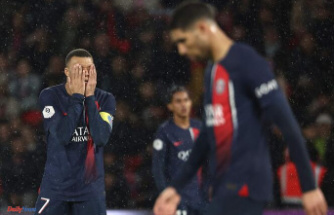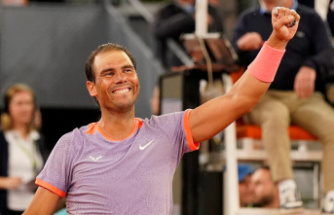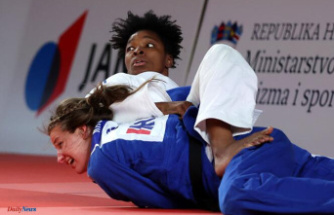And again the VAR is under criticism. The scenes at the weekend in Frankfurt showed again: In the end, it is still people who decide - and they just make mistakes. Many years ago, Hermann Gerland would certainly have wished for a few more cameras in the stadiums!
The long-standing assistant coach of FC Bayern Munich and former Bundesliga professional, Hermann Gerland, once said: "When I played in Kaiserslautern back then, bats flew through the stadium there. And then there was a linesman. One of the players from Lauterer was three meters in Offside, he dared to raise the flag. But only once. The second time, one was six meters offside. Grandpa with the crutch, who didn't agree the first time, said behind him: 'You raise the flag one more time, boy, I'll knock the flag down with my crutch!' And he didn't just say that!" It's one of those anecdotes from a time when video evidence was still a sci-fi vision from the future.
Because you have to know: At that time, the “Sportschau” only showed a maximum of three games in the evening and often only one camera got lost in the stadiums of the Bundesliga. Schalke's champion player from 1958 and later long-time president, Günter Siebert, even once said: "When the television came to a game, we all went to the hairdresser." Football back then, as you can imagine, was different. Because where there were no cameras, there was plenty of scope for some insidious action and some blunders by referees. The professionals of that time make no secret of the fact that they had completely different opportunities on the pitch than today. But then football slowly but surely changed.
In the 1985/86 season, the DFB called in an expert for the interpretation of television images for the first time. At the time, ARD man Rudi Michel was supposed to judge the foul by Bremen's Bruno Pezzey, for which he had seen red in the game in Nuremberg on February 15, based on TV images. Michel: "One can rule out that Pezzey tripped. He wanted to avoid the danger after realizing that he couldn't reach the ball. His motor movement was flawless. But the images lack the third dimension." Referee Wolf-Dieter Ahlenfelder had interpreted the scene on the pitch differently: "There's no such thing as two yellow cards. The trouser button comes undone and I have to play red!" Now Bruno Pezzey has been acquitted, mainly because of the words of TV man Rudi Michel. From that moment everything was different in the Bundesliga: the DFB watched TV from then on!
The road to video evidence was still a long one. And the development from the days when television was still a rarity in Bundesliga stadiums to the present day, where the VAR's mistake in the Cologne basement at the game in Frankfurt was due to the simple fact that he didn't see another of the "More than 20 different camera perspectives" - as "Collinas Erben" wrote today - is an exciting and eventful one. Because one must never forget that the mere presence of TV cameras and everyone's knowledge of it has changed the game forever over the last forty years.
Many things, such as "hidden" fouls, simply don't exist anymore these days. Because everything is recorded and then broadcast and discussed. The players know that, of course, and that's why they have automatically and unconsciously adapted their actions on the pitch to this circumstance. That's why scenes seem downright grotesque, like the other day in the Champions League in Tottenham, when Sebastián Coates grabbed his hand right in front of the opposing goal to score a goal. However, his reaction afterwards spoke volumes. A rarely stupid action from another time!
The waves around the video assistant hit again at the weekend after the scene between Frankfurt's Jesper Lindström and Dortmund's Karim Adeyemi. Quite a few, like SGE sports director Markus Krösche ("Then stamp him in!"), called for the immediate abolition of the VAR. A romantic idea in many respects, but it is not realistic. Because football opened Pandora's box five years ago with the introduction of the video assistant - and will probably never close it again. The conveniences that come with reviewing relevant scenes off the green lawn are just too great. And even the opponents of the VAR will not want to go back to the old days in certain situations. Because just as the mere presence of cameras in the stadium changed the game on the pitch in the past, knowing about the VAR authority automatically prevents many contentious scenes and possible attempts at fraud.
But one thing should be clear to all football fans after this weekend at the latest: Even if some people dreamed otherwise when the video assistant was introduced five years ago, football will never be a 100 percent fair event. Because in the end it's always people who decide - and they make mistakes. And that's somehow, despite all the (understandable) excitement, a nice and forgiving idea.












